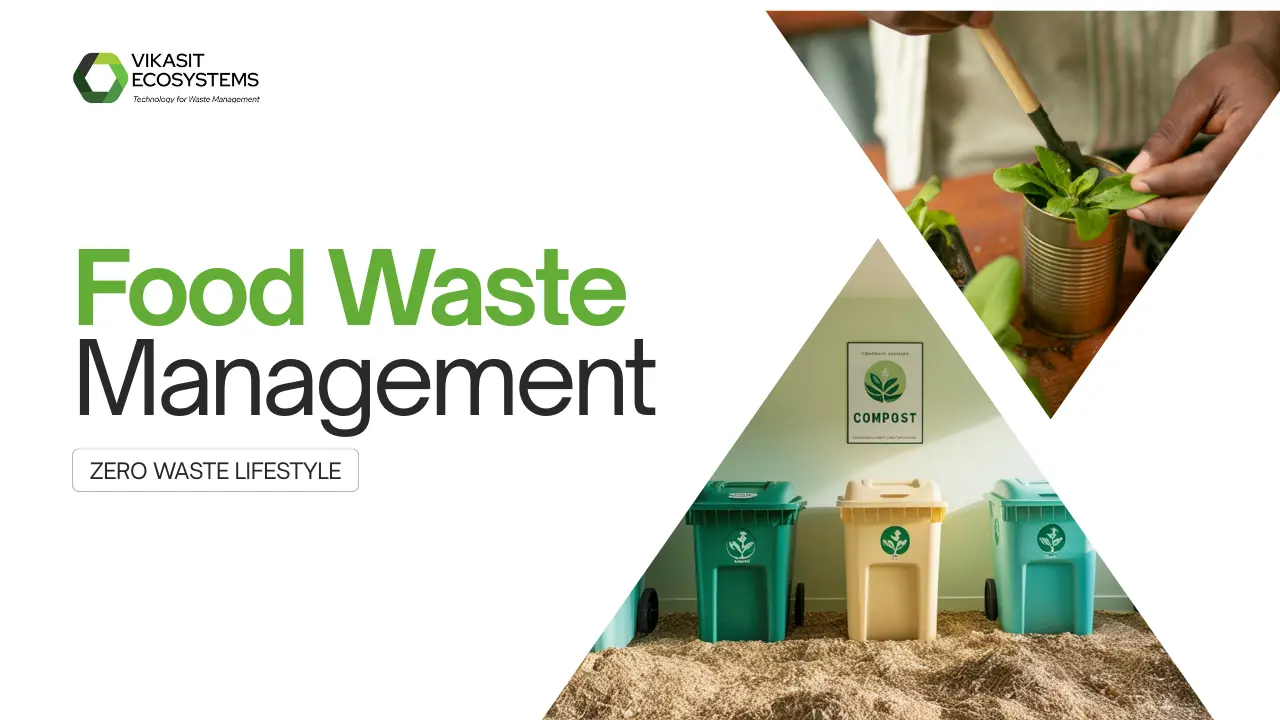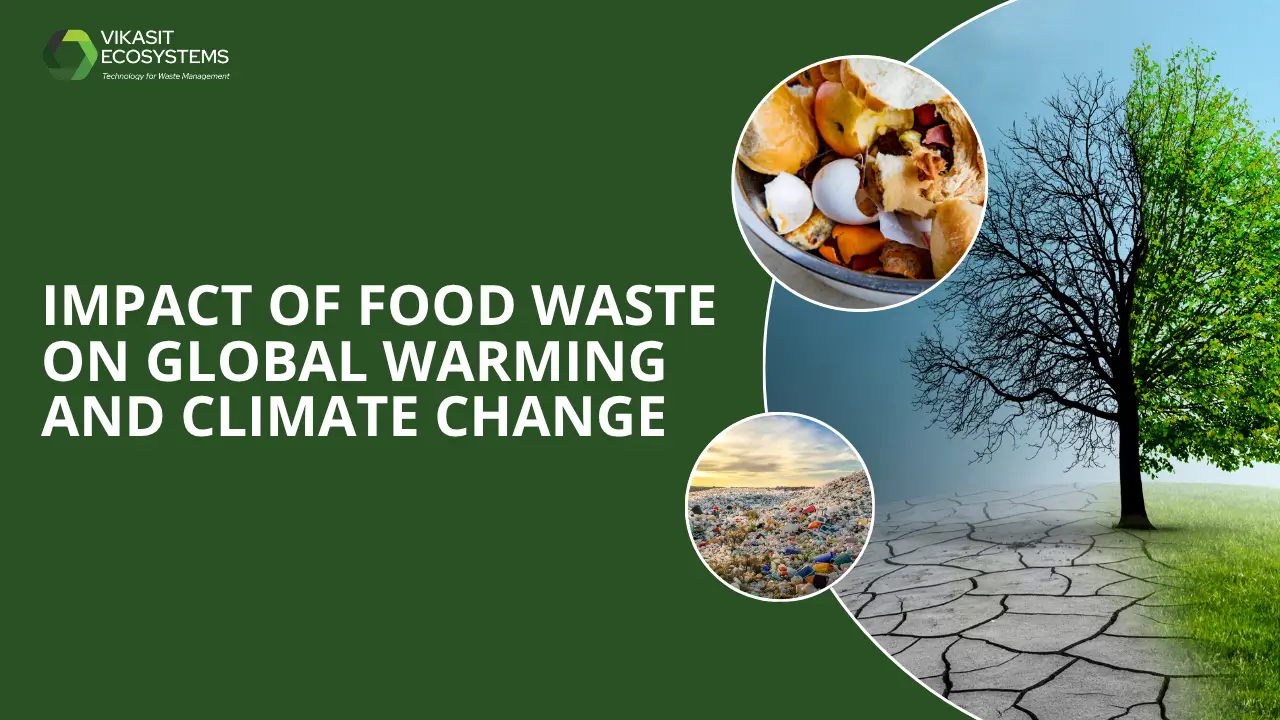Every day, we throw away tons of waste — from food scraps to packaging materials — without realizing where it all ends up. Most of it finds its way into landfills, releasing harmful gases and polluting our soil and water. The truth is, how we handle waste today will define the kind of planet we leave behind tomorrow. That’s why Waste Management isn’t just an environmental practice anymore — it’s a collective responsibility, and a path toward a greener, more sustainable future.
Understanding Waste Management
At its core, Waste Management is about handling waste in a way that minimizes harm and maximizes value. It starts with small, conscious choices — reducing what we throw away, reusing whenever possible, and recycling effectively.
The well-known waste management hierarchy — Reduce, Reuse, Recycle, Recover, Dispose — forms the backbone of sustainability. When communities and organizations follow this approach, waste becomes more than a problem; it becomes an opportunity for innovation and renewal.
Understanding Organic Waste and Its Impact
What Is Organic Waste?
Organic waste refers to biodegradable materials such as leftover food, garden trimmings, and paper. It might seem harmless, but when this waste decomposes in landfills, it becomes a serious environmental concern.
The Hidden Environmental Challenge
In landfills, organic waste breaks down without oxygen, releasing methane gas — a greenhouse gas that is 25 times more potent than carbon dioxide. Methane contributes significantly to global warming, while leachate from decomposing waste contaminates groundwater and damages soil health.
When organic waste is managed properly, however, it transforms from a pollutant into a powerful resource — enriching soil, producing clean energy, and closing the loop of sustainability.
The Urgent Need for Sustainable Waste Solutions
Startling Statistics
- India produces over 100 million tonnes of organic waste each year, according to the Ministry of Environment, Forest and Climate Change.
- Yet, less than 25% of this waste is processed scientifically or reused.
- Globally, food and organic waste are responsible for 8–10% of total greenhouse gas emissions, as reported by the United Nations Environment Programme (UNEP).
These numbers make it clear: adopting efficient Waste Management systems isn’t optional anymore — it’s essential for both environmental protection and public health.
Environmental and Health Consequences
Poor waste disposal contributes to air pollution, groundwater contamination, and soil degradation. In cities, unmanaged waste becomes a breeding ground for pests, leading to respiratory problems and waterborne diseases. Sustainable waste practices help break this chain, protecting both the planet and the people who call it home.
Organic Waste Converters: Turning Waste into Opportunity
How They Work
Organic Waste Converters (OWCs) use natural microbial processes to decompose organic matter and convert it into compost or biogas. The result is a clean, efficient, and scalable solution for managing waste in residential, commercial, and industrial spaces.
Why They Matter
- Environmental Impact: Reduce landfill waste and cut methane emissions
- Economic Advantage: Lower disposal costs while generating useful by-products
- Social Value: Encourage communities to participate in sustainable living
By treating waste as a resource, OWCs embody the very idea of a circular economy — where nothing truly goes to waste.
Overcoming Challenges in Waste Management
While awareness about Waste Management is growing, practical implementation often faces real challenges. Segregation at source, limited infrastructure, and low community participation remain major hurdles in many cities.
However, these challenges are not insurmountable. Education, technology, and collaboration can make a remarkable difference. For instance, automated systems like Vikasit’s Soil Maker OWC Machine simplify waste conversion, while Waste Management as a Service ensures that even those without technical expertise can manage waste efficiently.
When local bodies, businesses, and citizens work together, waste management evolves from a problem to a shared solution.
The Human Side of Waste Management
Beyond technology and policies lies the real heart of sustainability — people. The success of any waste initiative depends on collective human effort. When residents segregate waste at home, when schools teach composting, and when corporate offices commit to reducing their footprint, change becomes tangible.
Waste management, at its core, is not about machines or systems; it’s about mindset. Each act of responsibility — separating wet and dry waste, saying no to single-use plastics, or composting food scraps — shapes cleaner cities and healthier communities.
The path to a greener tomorrow begins with individuals who care enough to act today.
Building a Circular Economy Through Waste Management
In a circular economy, materials are reused and recycled rather than discarded. Waste is seen not as the end of a product’s life, but as the beginning of something new.
When organic waste is processed into compost or biogas, it re-enters the economy as a valuable resource — fuelling agriculture, improving soil quality, and reducing dependence on chemical fertilizers. This closed-loop approach is what makes Waste Management a cornerstone of true sustainability.
Implementing Organic Waste Management in Your Space
- Assess Your Waste: Start by understanding what types of waste you generate and how much.
- Choose the Right OWC Machine: Select one that suits your scale — from small residential units to industrial systems.
- Create Awareness: Encourage segregation at source through workshops, signage, and incentives.
- Monitor and Scale: Track your compost output and expand the program across departments or communities.
Every small step count when it comes to managing waste responsibly.
Vikasit Ecosystems: Powering a Greener Future
At the forefront of sustainable innovation, Vikasit Ecosystems is redefining Waste Management in India. Their vision is simple yet powerful — to transform waste into a resource that benefits both people and the planet.
Soil Maker OWC Machine
The Soil Maker is an advanced Organic Waste Converter that processes organic waste into nutrient-rich compost in just 4 hours. Designed for residential complexes, restaurants, offices, and institutions, it helps drastically reduce landfill waste and methane emissions — contributing directly to India’s sustainability goals.
Waste Management as a Service
Vikasit’s Waste Management as a Service (WMAAS) offers a complete solution — from waste collection and segregation to composting and recycling. The approach ensures end-to-end accountability and measurable environmental results.
Through technology, innovation, and community engagement, Vikasit Ecosystems is proving that sustainability can be both practical and profitable — one compost cycle at a time.
📞 Phone: +91 96065 96849
🌐 Website: www.vikasiteco.com
The Future of Waste Management in India
Government initiatives like Swachh Bharat Mission, Smart City Projects, and Extended Producer Responsibility (EPR) policies are creating a strong foundation for sustainable practices nationwide.
Meanwhile, new technologies — from AI-powered waste sorting to IoT-enabled tracking systems — are making waste processing smarter and more efficient.
As India grows, so does the need for innovative, scalable, and inclusive Waste Management systems. The future is not just about managing waste better — it’s about ensuring no waste is wasted.
Conclusion: From Waste to Wealth
Building a greener future isn’t about one big action — it’s about millions of small, conscious choices. Whether it’s separating waste at home, adopting composting systems, or partnering with sustainable service providers like Vikasit Ecosystems, every effort adds up.
With the right technology, community effort, and a shared vision, Waste Management can truly become the driving force behind a cleaner, healthier, and more sustainable India.
FAQ
What is Waste Management and why is it important?
It’s the process of collecting, processing, and recycling waste to minimize environmental harm and promote sustainability.
How does organic waste management benefit the environment?
It reduces methane emissions, lowers landfill pressure, and produces compost that enriches soil naturally.
What is the Soil Maker OWC Machine?
It’s an advanced Organic Waste Converter from Vikasit Ecosystems that transforms organic waste into compost within 4 hours.
How can residential societies implement Waste Management effectively?
By segregating waste at source, setting up small OWC units, and encouraging residents to compost food waste locally.
What’s the future of Waste Management in India?
With growing policy support and technological innovation, India is steadily moving toward decentralized, sustainable waste management systems.

Written by the Sustainability Research Team at Vikasit Ecosystems – pioneers in decentralized organic waste management and creators of The Soil Maker. Follow us for updates on green innovations, circular economy, and urban resilience.




